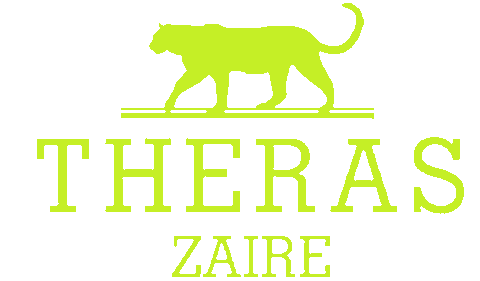𝐅𝐞𝐧𝐜𝐢𝐧𝐠 𝐢𝐧 𝐀𝐟𝐫𝐢𝐜𝐚: A Rising Force in the Global Arena
Fencing in Africa has undergone a remarkable transformation in recent decades. Once perceived as a niche or elite sport, it is now steadily gaining ground across the continent. From youth development programs to international podium finishes, African nations are showing that fencing has a bright future on the continent.
At the heart of this movement lies the African Fencing Championships—the continent’s premier fencing tournament organized annually by the African Fencing Confederation (CAE). Held since 1991, these championships serve as qualifiers for the Fencing World Cup circuit under the Fédération Internationale d’Escrime (FIE). Let’s dive into the evolution of fencing in Africa and highlight the athletes and countries shaping its future.
African Fencing Championships: From Cairo to Casablanca
The African Fencing Championships began in 1991 in Cairo, Egypt, with only four events. Since then, the competition has grown into a major continental event featuring 12 disciplines across épée, foil, and sabre—both individual and team, for men and women.
Over the years, the championships have been hosted by multiple African cities, including Casablanca (Morocco), Tunis (Tunisia), Dakar (Senegal), Pretoria (South Africa), and Bamako (Mali). As of 2024, the event has completed 22 editions, with Egypt, Tunisia, Morocco, Algeria, South Africa, and Senegal often emerging as the strongest performers.
African Fencing Champions 2024 – Casablanca, Morocco
The 2024 African Fencing Championships took place in Casablanca, Morocco, from June 6 to 10, featuring fencers from 18 African nations. The competition crowned champions across 12 events. Here are some of the standout performances:
🥇 Egypt Dominates Again
With 22 total medals (9 gold, 4 silver, and 9 bronze), Egypt once again affirmed its leadership in African fencing.
- Yara Elsharkawy (Foil, Women’s Individual) won gold, defeating Maxine Isabel Esteban from Côte d’Ivoire 9-8 in a tense final.
- Mohamed Elsayed took gold in Men’s Épée, narrowly beating Morocco’s Houssam Elkord 14-13.
- Mohamed Amer won the Men’s Sabre final against teammate Adham Moataz with a score of 15-10.
- Mohamed Hamza took gold in Men’s Foil, beating Abdelrahman Tolba in an all-Egyptian final.
- Egypt also swept the team events, including Women's and Men's Foil, Sabre, and Épée.
- 🥈 Tunisia’s Key Moments
Tunisia secured three medals, including team gold in Men’s Sabre. Standouts included:
-
Fares Ferjani and Ahmed Ferjani, both regulars on the African circuit.
-
Tunisia’s team edged out Egypt 45-43 in one of the most thrilling matches of the tournament.
🥉 Rising Stars from Across the Continent
- Alexandra Ndolo of Kenya took gold in Women’s Épée, defeating Morocco’s Camilia El Kord 15-14.
- Lorina Essomba from Cameroon won gold in Women’s Sabre, narrowly beating Egypt’s Nagwa Nofal.
- Côte d’Ivoire impressed with strong showings from Maxine Esteban, Bedi Paul Alex Beugre, and Jeremy Keryhuel, each earning medals in individual events.
In total, nine African countries won at least one medal, showcasing the increasing depth of talent across the continent.
Egypt: Africa’s Fencing Powerhouse
Egypt continues to dominate African fencing. The country has built a strong domestic infrastructure, with fencers such as Ziad Elsissy—bronze medalist at the 2023 World Championships in Milan—making an impact on the world stage. Other elite athletes include:
- Mohamed Amer – Sabre specialist and national champion.
- Malak Hamza, Noha Hany, and Nagwa Nofal – key female foil and sabre competitors.
- Mohamed Hamza – A rising global star with Olympic experience.
Egypt’s consistency at both senior and junior levels makes it a beacon of excellence for African fencing.
A Word from the African Fencing Confederation
In a recent interview, Mbagnick Ndiaye, President of the African Fencing Confederation, stated:
"Fencing is gaining ground in Africa. While Egypt leads the way, countries like Algeria, Morocco, Tunisia, Senegal, South Africa, and Kenya are making real progress."
He emphasized two key priorities for the CAE:
- Development programs to expand the sport across the continent.
- Enhanced management of fencing activities, including coaching certification and federation support.
One of the biggest challenges remains funding. Fencing is an expensive sport due to its equipment, travel, and infrastructure requirements. While the FIE provides annual subsidies, further support from local governments and private sponsors is critical.
The FIE Coaching Academy in Johannesburg
A vital component of African fencing's growth is the FIE Academy in Johannesburg, South Africa. Since 2018, it has trained 46 coaches from 12 countries, offering internationally recognized certifications.
The academy plays a crucial role in grassroots development, helping African countries cultivate their own pool of qualified fencing coaches, especially in under-resourced areas.
Looking Ahead: Paris 2024 and Dakar 2026
African fencers will look to build on their momentum at the Paris 2024 Olympic Games, with high hopes for Egyptian stars like Ziad Elsissy and Mohamed Hamza. The sport is also included in the 2026 Youth Olympic Games in Dakar, Senegal, the first YOG to be held on African soil.
This historic event is expected to inspire a new generation of African fencers and bring further visibility to the sport across the continent.
Fencing in South Africa: A National Push
The Fencing Federation of South Africa (FFSA), now officially registered as a Non-Profit Organization, is making significant strides. South Africa hosts two major national championships annually—Seniors and Juniors—and offers competitions for age groups as young as U11.
All three weapons (Épée, Foil, Sabre) are practiced, and national rankings help determine teams for continental and international events. South Africa’s top fencers, such as Phakama Yantolo, continue to gain experience on the African stage.
Africa’s Ascent in the World of Fencing
Fencing in Africa is no longer an afterthought. Through dedicated development, international support, and rising talent, the continent is carving out a place in the global fencing community. Egypt leads the way, but countries like Kenya, Senegal, Morocco, and Cameroon are closing the gap.
With the African Fencing Championships as a launchpad and events like Paris 2024 and Dakar 2026 on the horizon, fencing in Africa is poised for even greater heights.





